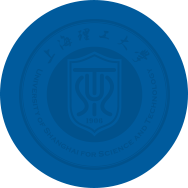Home · Research · Discipline · Power Engineering and Engineering Thermophysics Discipline
Energy and environment are two themes that people in the world are most concerned about. Energy, a strategic and public resource, has been listed as engineering science that needs prospective and systematic studies in the national plans of China. Power Engineering and Engineering Thermophysics, a first-level discipline of USST, is dedicated to the research of energy use and energy development, as well as the efficiency of energy utilization. Strategies of energy, energy conservation and emission reduction are very important for the national development. They also embody the national competitiveness in the international community. China is a major energy consumer, and the energy consumption per unit of major industrial equipment is significantly higher than that of developed countries. Therefore, advanced energy power equipment play a very important role in solving national development of energy, new energy, and energy conservation and emission reduction. National and local plans such as "National Energy 13th Five-Year Development Plan", "National Innovation Driven Development Strategy Outline", "13th Five-Year National Science and Technology Innovation Plan", "13th Five-Year National Strategic Emerging Industry Development Plan", "Made in China 2025", "13th Five-Year Plan for Energy Conservation and Emission Reduction", and the plans for building Shanghai into a Science and Technology Innovation Center with international recognition have made blueprints for scientific research and equipment manufacturing in the energy sector. The discipline aims to study the fundamental principles for energy conversion and utilization in a clean and efficient way, and to explore the methods for designing, manufacturing and operating these equipment and systems. This first-level doctoral program discipline covers second-level doctoral programs such as thermal engineering, refrigeration and cryogenic engineering, power machinery and engineering, engineering thermophysics, fluid machinery and engineering, new energy science and engineering, energy and environmental engineering, and chemical process machinery and etc. In line with national energy strategy, energy conservation and emission reduction, and environmental protection, etc., the discipline plays a significant role in national economy, social development, people's life and scientific research.
This first-level discipline has established a complete system for cultivating talents of undergraduate, master, doctoral, and post-doctoral level. It was approved to offer undergraduate programs in 1960. At present, it has three undergraduate programs: “Energy and power engineering”, “New energy science and engineering”, and “Process equipment and control engineering”. In 1981, it was the first batch disciplines that were approved to offer master's programs in China. In 1984, it was conferred the right to offer a doctoral degree in thermal engineering. In 1986, it was approved to offer doctoral degrees in refrigeration and cryogenic engineering, power machinery and engineering, and engineering thermophysics. In 1998, the discipline was the first batch to offer first-level doctoral programs in China. In 1990, it was approved to establish a mobile post-doctoral station, covering all the 6 second-level doctoral programs. Three more self-designed doctoral programs of the second level discipline were established later. In 2017, for its outstanding achievements in serving national defense and the aviation industry, it was approved to establish a new discipline ---- aerodynamics, a characteristic discipline serving the national defense. As a key discipline of the former Ministry of Machinery Industry, the first-level discipline was rated as Shanghai key discipline (Phase I) in 2001. The second-level discipline “Refrigeration and Cryogenic Engineering” was rated as the key discipline of Shanghai (Phase II, III). In 2012, the first level discipline was approved as the first-class discipline of Shanghai. In 2015, it was approved as the discipline supported by “Shanghai Plateau Discipline Construction Program”. So far, this discipline has trained 15,000 undergraduates and 4,000 graduate students. It has won 4 National Science and Technology Awards, and 40 provincial and ministerial level awards such as the first prize of Shanghai Technology Invention Award, and 2 national teaching achievement awards.


Copyright@2018 University of Shanghai for Science and Technology. All rights reserved. 沪ICP备08108292号-5 沪公网安备:31009102000040